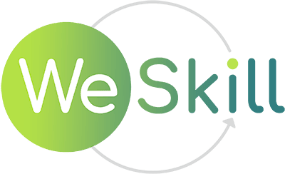WeSkill employer focus groups
Cluster news
WeSkill offers brief overview of Report on spa and wellness employer focus groups
An important activity in “Working package 3” was the organization of focus groups, in-depth interviews with opinion leaders and experts in the “WeSkill” partner countries.
Spa and Wellness employer focus groups were conducted in seven countries of Europe – Bulgaria, France, Greece, Italy, Latvia, Serbia, and Slovenia in the time from 1 of May till 30 of July 2021. In each of the project country, one-day online focus group gathered industry representatives from the Spa and Wellness sector. Altogether, the focus groups comprised more than 70 companies. Focus groups were conducted using common procedures – at the beginning of focus group WeSkill project aims, goals, main outputs, partner consortium and desk research results were presented. Afterwards focus group participants answer open questions, proposed suggestions and recommendations related to the project aims. In the final part of focus group participants discussed the survey results for final selection of skills gaps.
The most important skills and key competences in Spa and Wellness establishments that were mentioned by most focus group company representatives were teamwork, knowledge of foreign languages and communication skills.
As skills for specific positions where Spa and Wellness establishments face most difficulties when looking for suitable employees with the relevant knowledge and skills Spa and wellness company representatives outlined foreign languages, teamwork, inter-personal/communication skills, and willingness to work overtime, flexible time.
Most important knowledge for Spa and Wellness establishments most focus group participants listed knowledge about the Spa and Wellness services and products, knowledge of foreign languages, knowledge about the tourism services and products, also leadership and employee motivation, knowledge of psychology of sales and marketing as well as leadership and motivation of employees. Knowledge about the Spa and Wellness services and products was mentioned by Bulgaria, Greece, Latvia and Serbia. Knowledge of foreign languages was mentioned by Bulgaria, Greece, Latvia and Serbia, Slovenia. Knowledge about the tourism services and products was mentioned by Bulgaria, Greece, and Latvia. Knowledge about leadership and employee motivation was mentioned by Bulgaria, France and Serbia.
The lack of skills that have the greatest negative impact on the Spa and Wellness establishment, focus group company representatives highlighted oral communication skills, customer-handling skills, team-working skills, knowledge of foreign language, also management skills, technical, practical or job-specific skills and management skills. Negative impact on establishments in case of lack of oral communication skills was mentioned by Bulgaria, France, Greece, Latvia and Serbia. Negative impact on establishments in case of lack of customer-handling skills was mentioned again by Bulgaria, France, Greece, Latvia and Serbia. Negative impact on establishments in case of lack of team-working skills was mentioned by Greece, Latvia and Serbia.
As the skills that have a key-role for sector, Spa and Wellness company representatives outlined skills in client and public relations as well as need for multiple and poliqualification specialists. Client and public relations skill was mentioned by focus group participants of France, Greece, Latvia and Serbia.
The skill that was considered to be the most important for the good performance of Spa and Wellness establishment was client oriented communication skill and basic professional knowledge in the field of wellness or tourism. Client oriented communication skill was mentioned by focus group participants of Italy, Latvia, Serbia and Slovenia. Basic professional knowledge in the field of wellness or tourism was mentioned by focus group participants of Bulgaria, France and Serbia.
Regarding professional skills and competencies that Spa and Wellness establishment representatives foresee as needed in the future for industry focus group participants outlined digital competences and computer skills in Latvia, Serbia and Slovenia.
For more information visist the website.
Find out more about the WeSkill project here:


- Choose a service
- Fill out the form
- Receive an individual response